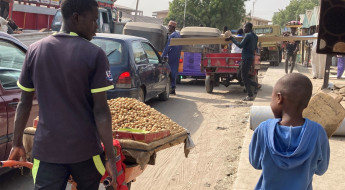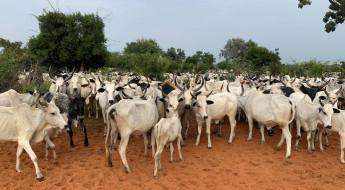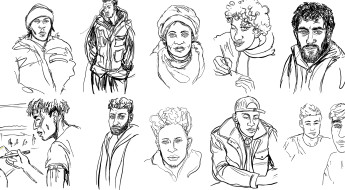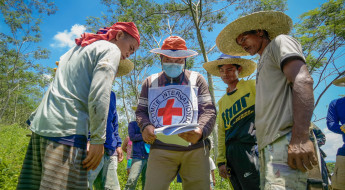Nigeria: 23,000 missing as conflict splits families
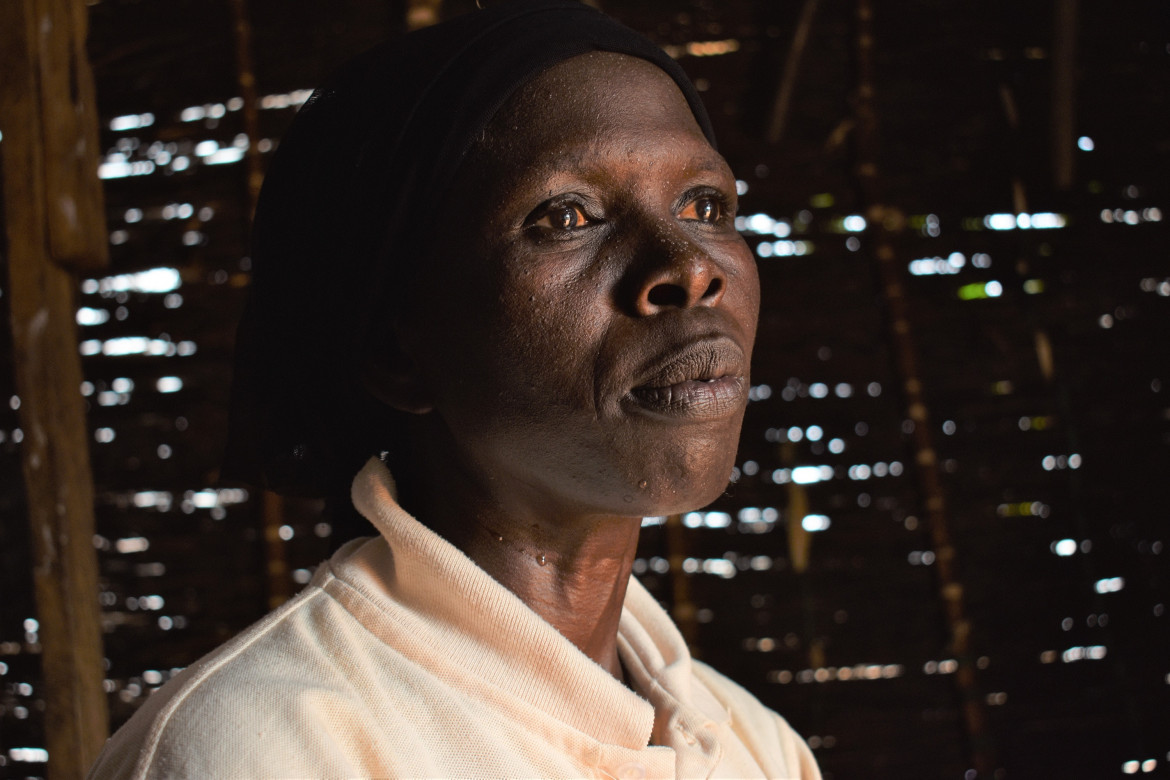 Saratu BitrusOn not knowing the fate of her daughter, Saratu says, “I was devastated and confused and sick… I didn’t know whether or not I had children.”Abdikarim MOHAMED/ICRC
Saratu BitrusOn not knowing the fate of her daughter, Saratu says, “I was devastated and confused and sick… I didn’t know whether or not I had children.”Abdikarim MOHAMED/ICRC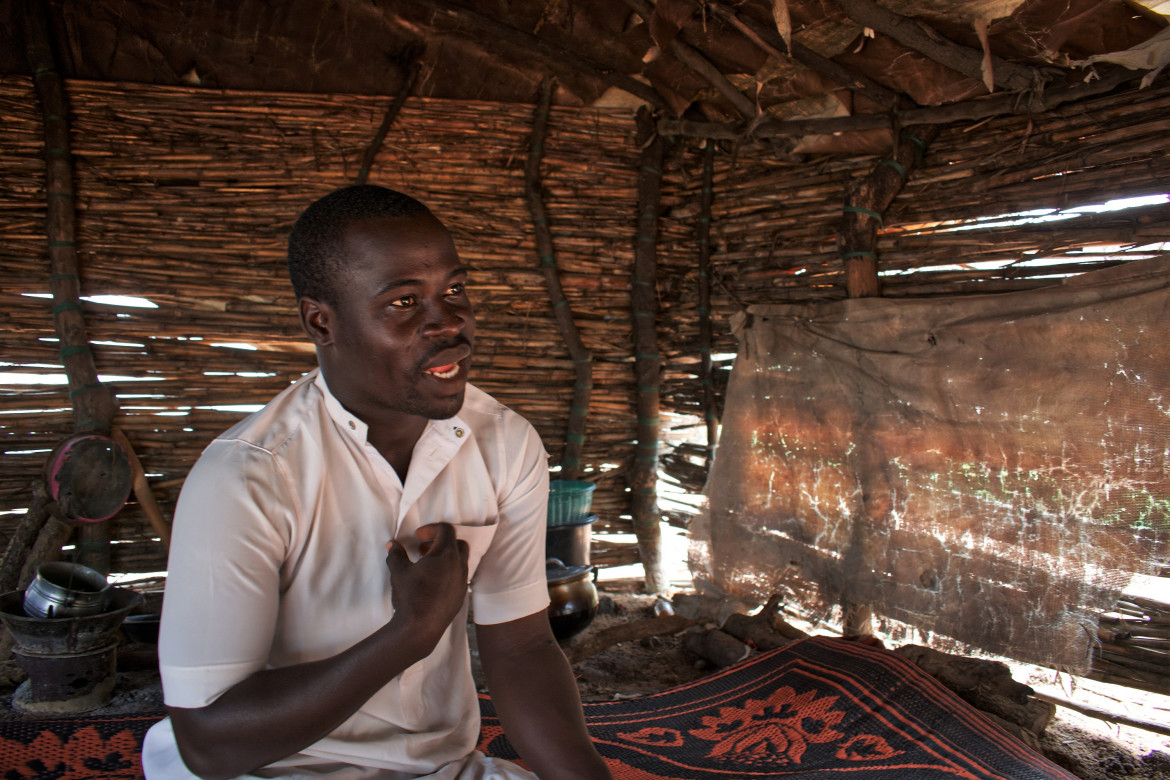 Abdullahi Abubakar“When we see other families together with their loved ones, it reminds us of our missing relatives. This is painful and sad.”Abdikarim MOHAMED/ICRC
Abdullahi Abubakar“When we see other families together with their loved ones, it reminds us of our missing relatives. This is painful and sad.”Abdikarim MOHAMED/ICRC Pictures might fade, but families hold on to the memories of missing relatives.Abdikarim MOHAMED/ICRC
Pictures might fade, but families hold on to the memories of missing relatives.Abdikarim MOHAMED/ICRC Saratu plays music outside her home in Damare IDP settlement, Yola.Abdikarim MOHAMED/ICRC
Saratu plays music outside her home in Damare IDP settlement, Yola.Abdikarim MOHAMED/ICRC “The flowers make my home beautiful and visitors are happy when they see them. I also feel good when I see them,” Saratu says. Her home stands out in the IDP settlement in Yola as one is greeted with pink and white flowers upon entering.Abdikarim MOHAMED/ICRC
“The flowers make my home beautiful and visitors are happy when they see them. I also feel good when I see them,” Saratu says. Her home stands out in the IDP settlement in Yola as one is greeted with pink and white flowers upon entering.Abdikarim MOHAMED/ICRC Abdullahi Abubakar enjoys teaching the Quran to children in the IDP settlement where he currently lives. For work, he runs a taxi, using a three-wheeled vehicle called Keke in Nigeria. He hopes he will, one day, be reunited with his missing loved ones.Abdikarim MOHAMED/ICRC
Abdullahi Abubakar enjoys teaching the Quran to children in the IDP settlement where he currently lives. For work, he runs a taxi, using a three-wheeled vehicle called Keke in Nigeria. He hopes he will, one day, be reunited with his missing loved ones.Abdikarim MOHAMED/ICRC Resolving missing cases in a pandemicOur ability to trace and close missing cases is currently very limited because of COVID-19 prevention measures. However, the team continues to stay in touch with family members by phone and share information on restoring family links services on Twitter and Facebook.
Resolving missing cases in a pandemicOur ability to trace and close missing cases is currently very limited because of COVID-19 prevention measures. However, the team continues to stay in touch with family members by phone and share information on restoring family links services on Twitter and Facebook.
Saratu Bitrus, 50, has been separated from her 15-year-old daughter, Jumai Emma, since 2014. Jumai was staying with relatives when their village was overrun by armed groups. Saratu got word later that Jumai was held up in the village and could not leave. Conflict has since driven Saratu further down to Adamawa state where she now lives in an internally displaced persons (IDP) settlement in Yola.
Abdullahi Abubakar, 28, lives in Malkohi IDP settlement. He lost contact with 18 of his relatives after the conflict spread to his home in Gwoza, Borno in 2014.
Sadly, Saratu and Abdullahi are not the only ones who have lost contact with loved ones. Nearly 23,000 people are registered as missing with the International Committee of the Red Cross (ICRC) in Nigeria, an increase of about 1,000 people since June 2019. More than 90 per cent are as a result of the ongoing conflict in the north-east. More than half of the total cases (57 per cent) are children.
Saratu keeps her mind preoccupied with gardening and music while Abdullahi has found teaching children in his area very fulfilling. However, not a day goes by without either of them thinking of their family.

